Odisha
Bhitarkanika: Nesting and Breeding paradise of Crocodiles
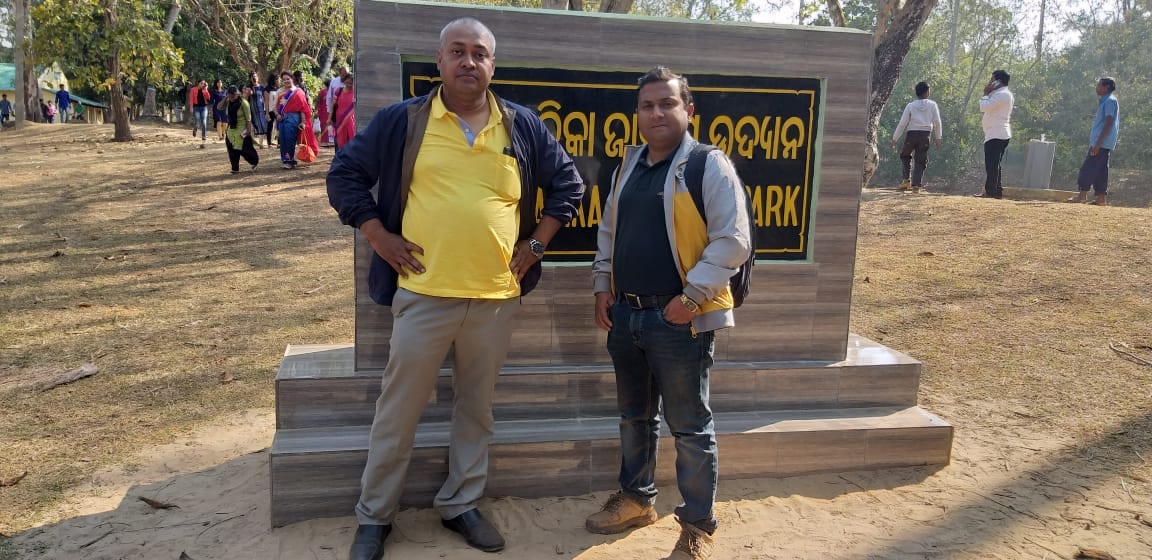
Littoral state Odisha wins the heart and soul of visitors across the globe for it’s naturally sculptured and indented picturesque sandy beaches blended with dunes and pines. Apart from its pastoral beaches, the state is famous for its estuaries and her wildlife. Moving forward with our discourse, on the north-east of the Odisha coastal relief we encounter at the confluence of Bay of Bengal and Brahamani and Baitarini river; the Bhitarkanika Wildlife Sanctuary.
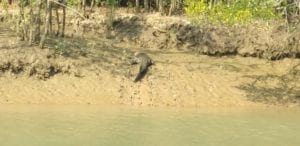
Bhitarkanika Wildlife Sanctuary is considered a standout amongst the most noteworthy of Asia. It is unique because of reasons more than one. The dynamic and salt tolerant types of trees, the Mangroves that by and large develop in tropical and sub-tropical between tidal locales; the lush green, rich and throbbing eco-framework.
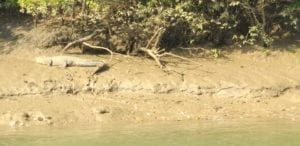
Situated in the estuarial locale of Brahmani-Baitarani, in the north-eastern place of Kendrapara region of Odisha, the haven covers a zone of 672 square kilometers of mangrove timberlands and wetland. Crossed by a thick system of creeks, with the Bay of Bengal on the east, Bhitarkanika Wildlife Sanctuary is home to more than 215 types of flying creatures, including winter transitory flying creatures from Europe and focal Asia.
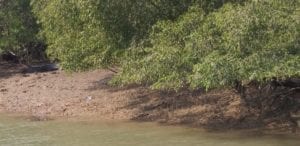
Aside from the Mangroves, another irregularity that the haven has to its record is the restraint of its biological community by the Giant Salt Water Crocodiles and various assortments of other creature species. It is a direct result of these forces, that a tremendous field of backwoods around 145 square kilometers has been authoritatively proclaimed as the Bhitarkanika National Park. This stop including mangrove woodlands, springs, estuaries, streams, aggregated land, backwater and mud pads is exceptionally huge for the environmental, natural and geomorphologic foundation of Odisha
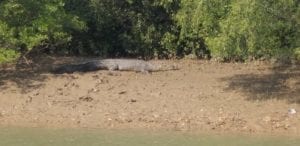
The Odyssey: One can start his exciting, entertaining and evergreen journey from Khola and Gupti, the two entry points to enter the most sought-after destination, Bhitarkanika National Park. Sightseers should take entry permit from the Forest Check Gate at Khola and Gupti. Both Forest Department’s and private boats are available at both places. Private boats are also available at JAYANAGAR & CHANDABALI which are in close proximity to Bhadrak railway station(60 km). Bhadrak is a beautiful bucolic based district 125 km from Bhubaneswar, the state capital.
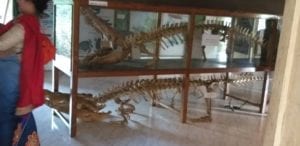
As visitors start their journey on the mechanized boat along the rivulet of Brahamani, will come across by mind-boggling mangrove ecosystem, banked on both sides of the river. The phototropic pneumatophores roots of the mangrove plants protruding upward from the soil in search of sunlight provide surprising scenery to the sightseers. At the same time, they will experience chirping birds and stammering monkeys on the twigs of sundry trees. By the time they try to catch those memories in their imagination most of the times and sometimes in their cameras and cell phones, the steamer slows down its speed to take glimpses of much-awaited attractions of the sanctuary I;e the gigantic crocodiles and their young ones.
For visitors, the best time to travel the Bhitarkanika is between the month of October to march. With the onset of winter tropical crocodiles used to come out of the water to bask in the sunshine and scouting for the remedy of its excruciating mouth ulcers which form with the onset of the chilly season.
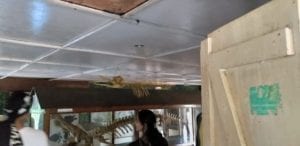
After traveling the most exciting and venturous journey around one and half an hour with apprehension and astonish tourists will reach at the shoreline of the Dangamal village the gateway to the Bhitarkanika National Park. As the visitors get down of the boat on the shore, the rustic mangroves ecosystem welcome them flanked on both sides of a narrow passage heading towards the Bhitarkanika National Park. The silent and salubrious national park supported with small backwaters gives enough reasons to give a smile to the sightseers.
Attractions:
Wildlife:
It is a decent place to locate the monster Salt Water Crocodile, some developing to 23 feet long, alongside different reptiles like the Water Monitor Lizard and the King Cobra. Spotted deers and wild hogs are bounteous in the recreation center and can be spotted at all the real areas. Goliath saltwater crocodiles and an assortment of other untamed life occupy this eco-framework which is one of Asia’s most breathtaking natural life sanctuary. Eight assortments of Kingfishers are found here and can be spotted along the numerous brooks and riverines inside the recreation center. The arduous ride from Khola to Dangmal or the other way around is exceedingly prescribed.
Mangroves:
Mangroves are salt tolerant, mind-boggling and dynamic eco-frameworks that happen in tropical and subtropical between tidal locales. Bhitarkanika is one such area of rich, lavish green energetic eco-framework lying in the estuarine locale of Brahmani-Baitarani in the North-Eastern corner of Kendrapara region of Odisha. The zone is crossed by a system of brooks with Bay of Bengal on the East. The rear way between the winding rivulets and streams houses the second biggest practical mangrove eco-arrangement of India. Its 672 km². of mangrove timberland and wetland, gives a home to well more than 215 types of winged creatures including winter transients from focal Asia and Europe.
In 2006, Guinness Book of World record acknowledged cases of a 7.1 m (23 ft 4 in), 2,000 kg (4,400 lb) male saltwater crocodile living inside Bhitarkanika National Park. Due to the trouble of catching and estimating a substantial living crocodile, the exactness of these measurements is yet to be confirmed. There is an old adage “Never trust a crocodile and its tears”. After visiting the sanctuary and national park suddenly seems too sublime from our memory. Sightseers definitely going to have an indelible scar in their memory down the years about the cumbersome crocodile and its silent killer approach.






























Sanjay Kumar pal
May 11, 2019 at 11:16 AM
Very good article…we can explore good tourism prospects for government of Odisha.